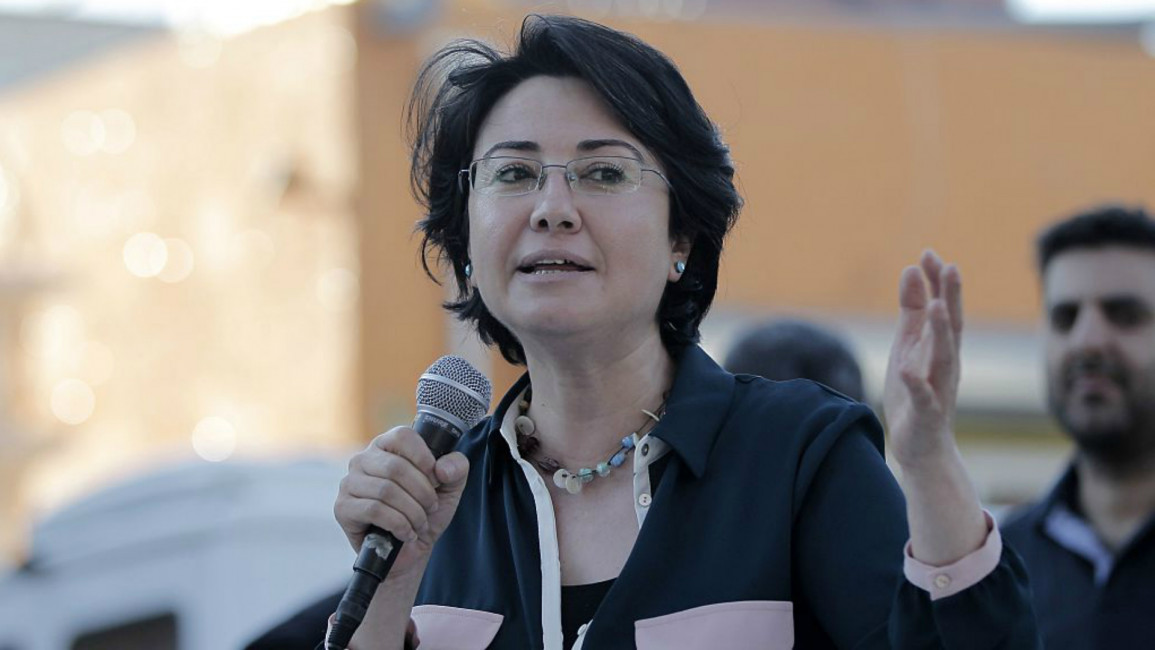
Killing them softly: Palestinian voices at the Knesset
Far from a one-off charge, Balad has grown used to accusations against it, and the Israeli government has tried hard to ban the party. Of those making up the Joint List, Balad is perhaps one of the most disliked by Netanyahu's government. Pro-Palestinian politics in Israel may be in the minority but have been gaining momentum, as seen during the last election in 2015.
Now, 17.5 percent of the country's eight million population is represented by the Joint List. It holds 13 of the 120 seats in parliament, three of which are occupied by Balad representatives, and together they represent the third largest bloc in the legislature.
Unfortunately, 2016 has seen this inspiring rise in Arab Israeli politics come into a demise of sorts. Unwilling to allow democracy to take its natural course, the ramping up of laws that are divisive and "racist" by nature has ensued.
Haneen Zoabi, talking to Al Jazeera in July, pointed out that the Knesset has 80 racist laws. Of these, 30 were passed in the last eight years during Netanyahu's time in office - one of the most right-wing governments in Israel's history.
 |
This is simply an arbitrary measure to target the political activity that opposes the current government |  |
Zoabi herself was the subject of a new law passed with the aim of expelling politicians from the Knesset, if their views are deemed to have incited racism or supported an armed struggle. The vote to expel the politician was, however, overturned by a High Court.
Adalah, the Legal Center for Arab Minority Rights in Israel, has listed the relevant laws which curb the political expression of citizens, in a database on their website.
For instance, under one particular law, the Knesset can withhold salary and pensions from current or former Members of the Knesset (MKs) if they have been declared by the Attorney General to be suspects, defendants or persons convicted of a crime punishable by 10 years imprisonment or more or if they are not present at the trial. As Adalah points out, this is simply an arbitrary measure to target the political activity that opposes the current government.
The "Stop-and-Frisk" law gives more powers to the police to frisk individuals if they think they are about to commit a violent act, and allows them to establish temporary "stop and frisk" zones. The ultimate effect of this legislation will mean more arbitrary searches for Palestinians and other marginalised individuals, potentially affecting their presence in public places.
The NGO Funding Transparency law has also received widespread criticism as it essentially targets human rights organisations. NGOs that receive 50 percent or more of their funding from foreign governments have to state that fact when addressing parliament or other public officials.
 |
If the allegations against Balad are upheld, the repercussions would also be financial |  |
This ultimately enables harassment of organisations seeking to criticise government policies; inevitably those that may harm Palestinians. But this same law does not require the same transparency around donations from individuals based overseas, a practice held to be common amongst settler organisations.
However, the foreign funding of political parties is prohibited across the board. Although interestingly, this doesn't apply to campaigning for primary elections. This should clear up the confusion over why Netanyahu was able to garner financial support for his primary campaign from wealthy US donors. Over half the funding for his last campaign reportedly came from just three US families, donating over 1mn shekels.
According to the rules, all the information must be made public, the State Comptroller has constant oversight of the political financing function but ultimate criminal liability will be determined by the Attorney General if any wrongdoing is suspected, after the police investigation is complete.
 |
The shekels really do matter when it comes to progressing the Palestinian cause |  |
If the allegations against Balad are upheld, the repercussions would also be financial. Should they result in a conviction, the party will be hit with heavy fines. The State Comptroller will be issuing a negative report on the party, meaning the Speaker of the Knesset would deny the next three monthly payments it is due to receive.
If the donations are deemed illegal, they would have to be paid back at double the amount. The responsible individuals would also be liable to imprisonment for one year as would any member who refuses to pay the fine.
This appears to highlight not just the hypocrisy in Israeli politics, but that the authorities will aim to hit them hard, where it hurts – the party's purse strings - if any of the allegations hold. As all of this has demonstrated, the shekels really do matter when it comes to progressing the Palestinian cause.
In addition to the 23 arrests made on Sunday 18 September, 13 more were made on Wednesday 21 September. However, Israeli news is reporting that the arrests are "boosting" the party's popularity.
Officials of the Balad party maintain these are all false allegations, and in light of the trend in the campaign against political activity of Palestinians, it is worth keeping a close eye on the next moves of the Israeli government.
Sophia Akram is a researcher and communications professional with a special interest in human rights particularly across the Middle East. Follow her on Twitter: @mssophiaakram
Opinions expressed in this article remain those of the author and do not necessarily represent those of The New Arab, its editorial board or staff.


![Minnesota Tim Walz is working to court Muslim voters. [Getty]](/sites/default/files/styles/image_684x385/public/2169747529.jpeg?h=a5f2f23a&itok=b63Wif2V)




